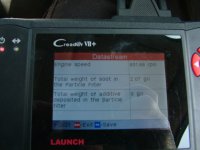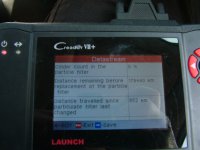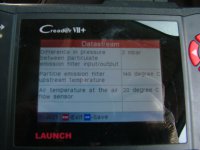I’m new here and would first like to thank you all for the great forum!
Last week I bought a FIAT 500 1.3 Multijet 75hp from a friend of mine, the car is a 2008 and has 71k Kms on the clock.
He was having problems with continuous oil changes (every 1000 to 2000Kms).
I’m able to do almost any mechanical job and I really like 500 so I decided to go ahead.
Now the fun begins!
I received the car and the “change oil” message was on, checked the level and there was a lot of oil…
So, first step let’s change the oil and filter… I took 5Liters of oil from the car and all it took was 3Liters to completely fill it up. Meaning: 2Liters of diesel in the oil!
Ok, this is probably because the DPF is clogged… Let’s do a forced regeneration.
I did two forced regenerations and took the DPF from 98% clogged to 85%. I was expecting better results.
Meanwhile the oil level is already well above the maximum mark! Just after 50Kms and two forced regenerations.
Q1 is this to be expected from the Forced Regenerations?
Next steps,
I can think of other ways for the engine to get full of diesel:
I will keep you posted on the success or not of my endeavor.
Last week I bought a FIAT 500 1.3 Multijet 75hp from a friend of mine, the car is a 2008 and has 71k Kms on the clock.
He was having problems with continuous oil changes (every 1000 to 2000Kms).
I’m able to do almost any mechanical job and I really like 500 so I decided to go ahead.
Now the fun begins!
I received the car and the “change oil” message was on, checked the level and there was a lot of oil…
So, first step let’s change the oil and filter… I took 5Liters of oil from the car and all it took was 3Liters to completely fill it up. Meaning: 2Liters of diesel in the oil!
Ok, this is probably because the DPF is clogged… Let’s do a forced regeneration.
I did two forced regenerations and took the DPF from 98% clogged to 85%. I was expecting better results.
Meanwhile the oil level is already well above the maximum mark! Just after 50Kms and two forced regenerations.
Q1 is this to be expected from the Forced Regenerations?
Next steps,
- Disassemble the DPF and have it cleaned in a pressure machine.
- Disassemble the EGR and cooler to give it a good clean.
- Disassemble the intake manifold and clean it? (is this worth it from your experience on these engines?)
I can think of other ways for the engine to get full of diesel:
- Bad High-Pressure Pump
- Bad injector
I will keep you posted on the success or not of my endeavor.




